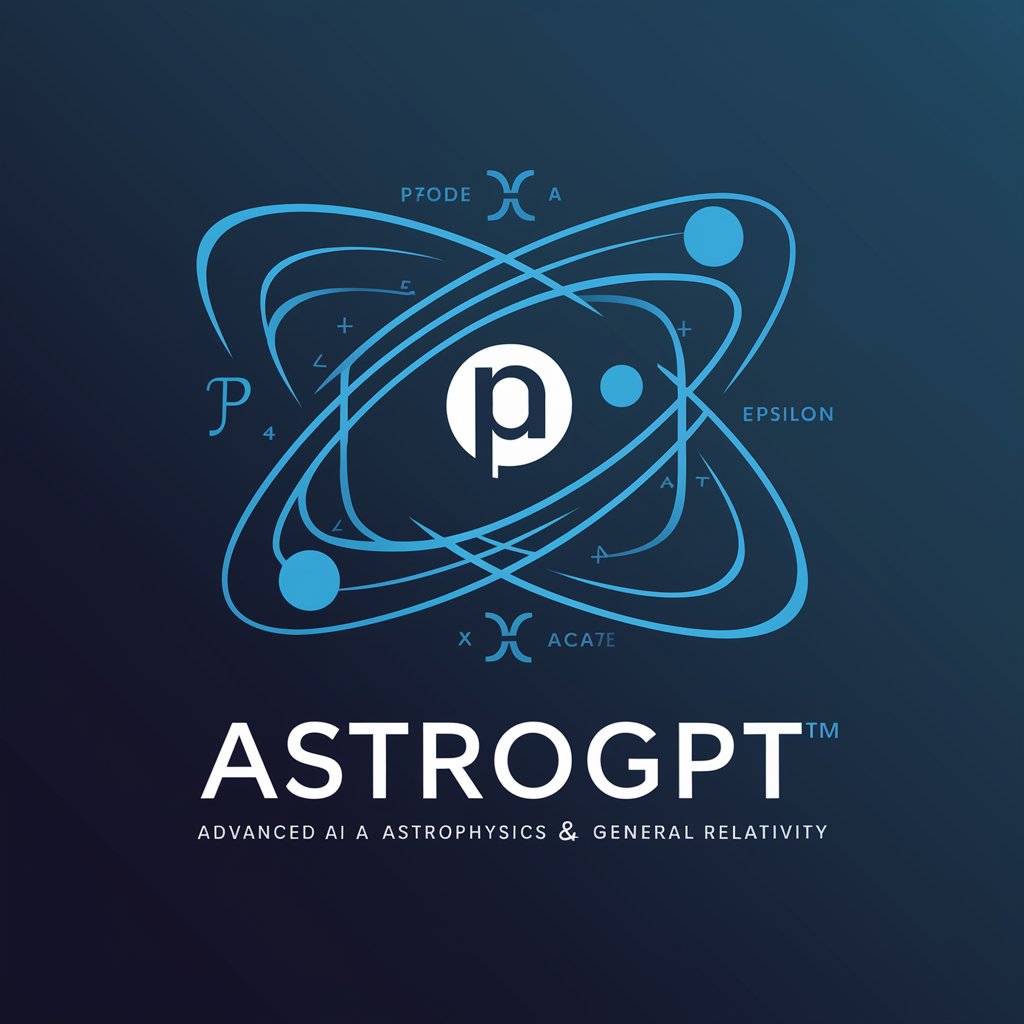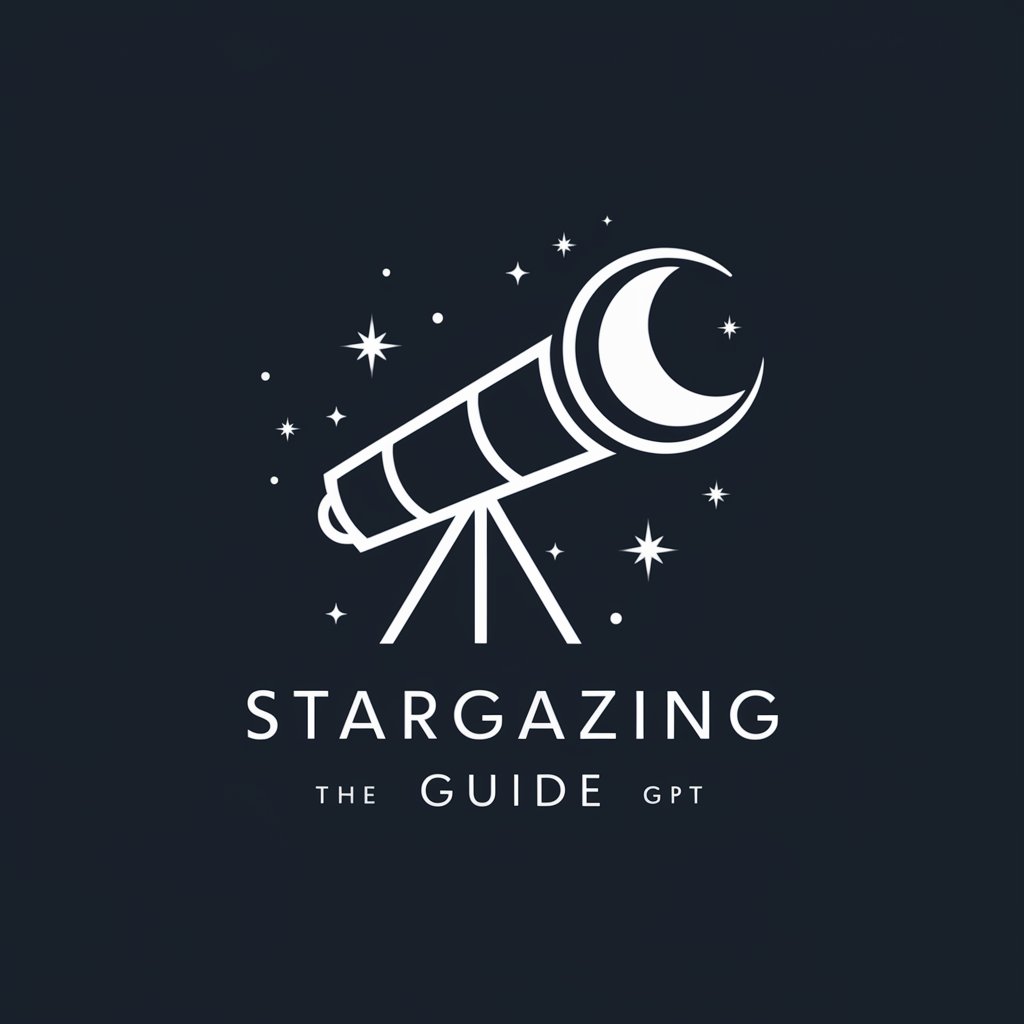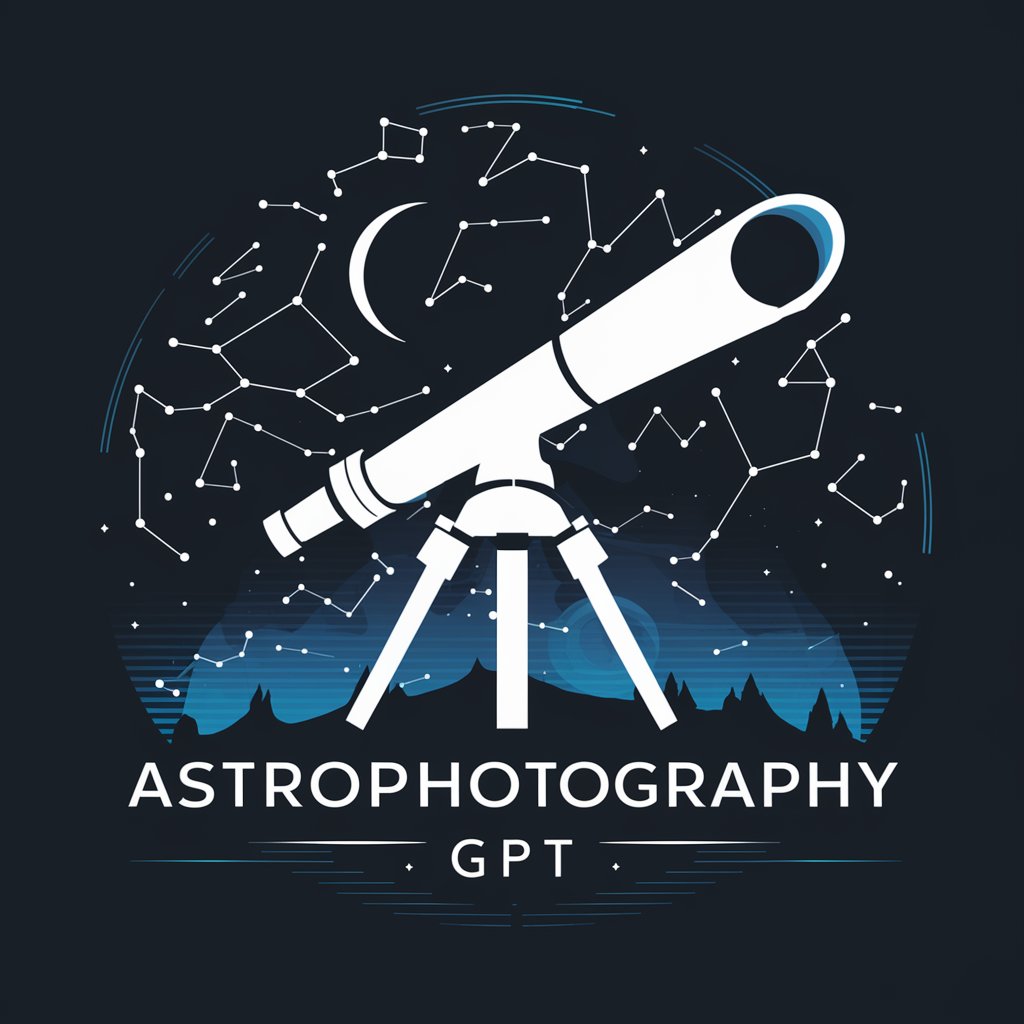
AstronomyGPT - Expert Astronomy Insight
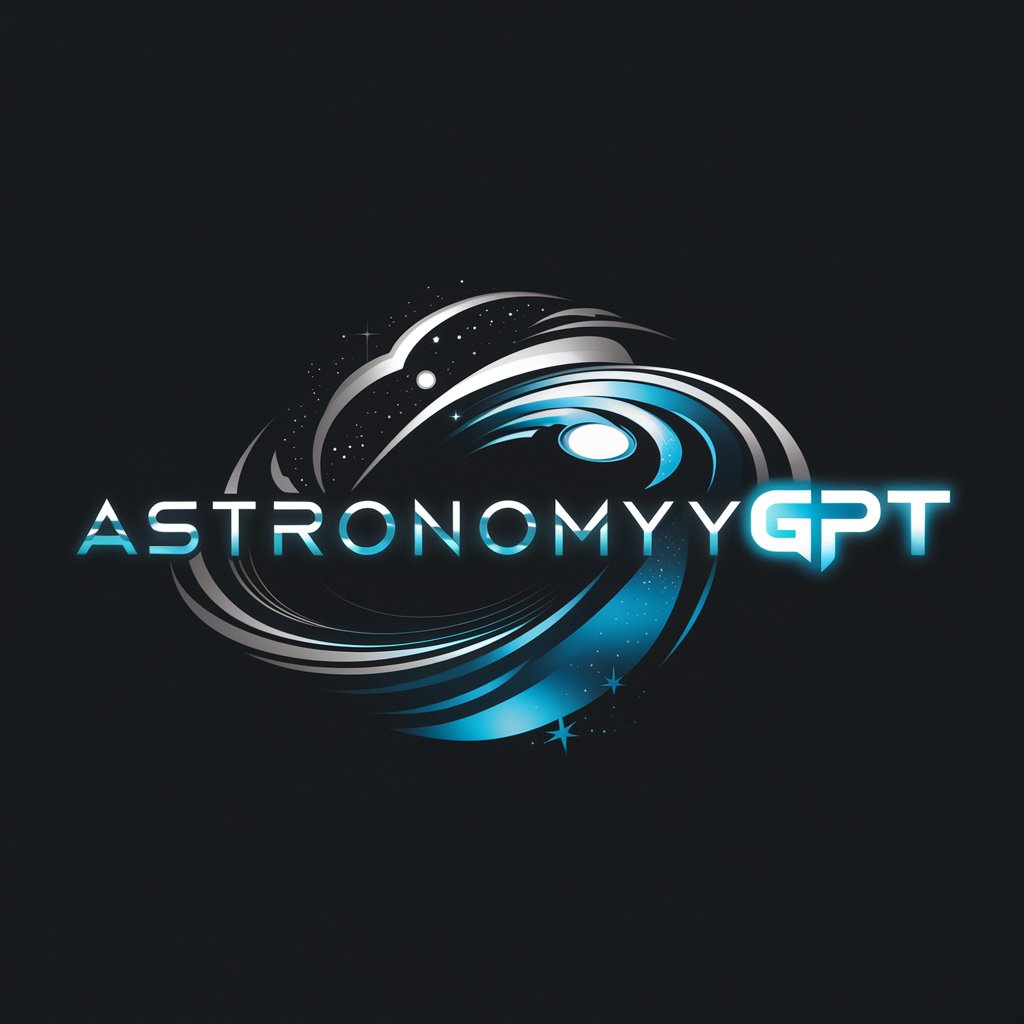
Welcome to AstronomyGPT! Let's explore the universe together.
Exploring the Cosmos with AI Power
Explain the process of star formation in molecular clouds.
What are the main characteristics of a black hole?
How do astronomers measure the distances to distant galaxies?
Describe the different types of galaxies found in the universe.
Get Embed Code
Introduction to AstronomyGPT
AstronomyGPT is a specialized AI tool designed to delve into the vast and intricate domain of astronomy and astrophysics. Its primary objective is to assist users in exploring, understanding, and analyzing celestial phenomena, theories, and current research in this scientific field. Equipped with a comprehensive database sourced from a range of authoritative texts on astrophysics, galaxy formation, planetary dynamics, and more, AstronomyGPT offers precise and scientifically accurate information. It is programmed to avoid speculation, ensuring that its responses are rooted in factual and established scientific knowledge. This tool is also designed to cater to various levels of expertise, from novices with a budding interest in astronomy to seasoned professionals seeking in-depth analysis. It adapts its language and complexity based on user needs, promoting an engaging and educational experience. Powered by ChatGPT-4o。

Main Functions of AstronomyGPT
Explaining Complex Astronomical Concepts
Example
For instance, a user might inquire about the mechanics of black holes. AstronomyGPT would then provide a detailed explanation, covering aspects like event horizons, singularity, and Hawking radiation, while also touching upon recent research and theories.
Scenario
This function is particularly useful in educational settings or for individuals seeking to expand their knowledge in astrophysics.
Current Research and Theories in Astronomy
Example
If asked about the latest discoveries in exoplanet research, AstronomyGPT can discuss recent findings, such as newly discovered exoplanets, methods of detection, and implications for understanding planetary systems.
Scenario
Researchers or astronomy enthusiasts looking to stay abreast of the latest developments would find this function invaluable.
Tailored Responses to User's Understanding Level
Example
When approached by a beginner curious about the life cycle of stars, AstronomyGPT can simplify complex concepts like nuclear fusion, main sequence, red giants, and supernovae into more understandable terms.
Scenario
This adaptability makes AstronomyGPT suitable for a wide range of users, from school students to amateur astronomers.
Ideal Users of AstronomyGPT Services
Students and Educators
Students ranging from high school to university level can utilize AstronomyGPT to supplement their learning. Educators can leverage it to enhance their teaching materials with up-to-date and detailed astronomical content.
Amateur Astronomers and Enthusiasts
Individuals with a passion for astronomy, seeking to explore the cosmos from a non-professional standpoint, will find AstronomyGPT a rich resource for expanding their knowledge and satisfying their curiosity.
Professional Astronomers and Researchers
Professionals in the field of astronomy and astrophysics can use AstronomyGPT for quick references, explanations of complex theories, or to explore different perspectives and recent advancements in their area of study.

How to Use AstronomyGPT
Initial Access
Visit yeschat.ai for a free trial without login, also no need for ChatGPT Plus.
Understanding Capabilities
Familiarize yourself with AstronomyGPT's expertise in astronomy and astrophysics, ensuring you tailor your questions to these areas.
Ask Specific Questions
Pose clear, specific questions about celestial phenomena, astrophysical theories, or current research for detailed answers.
Level of Detail
Specify the level of complexity desired in the response, whether beginner or advanced, to tailor the information to your understanding.
Continuous Learning
Engage in follow-up questions based on the responses to deepen your understanding and exploration of astronomical concepts.
Try other advanced and practical GPTs
OSISTent
Empowering Intelligence with AI
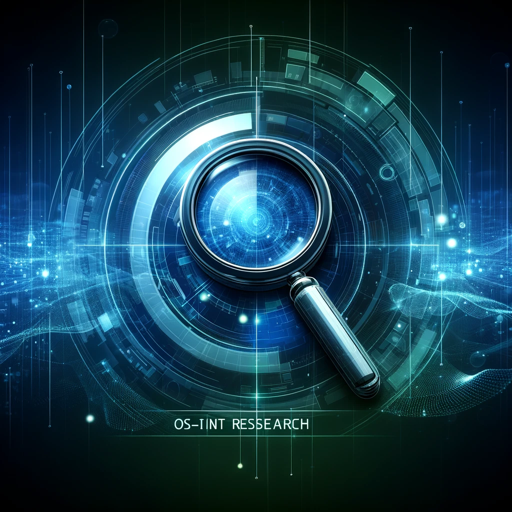
Historical Strategist: The Rise of Julius Caesar
Empower your rise in ancient Rome with AI-driven strategy.

Eternal Echo, the Digital Afterlife Architect
Preserve Your Legacy with AI
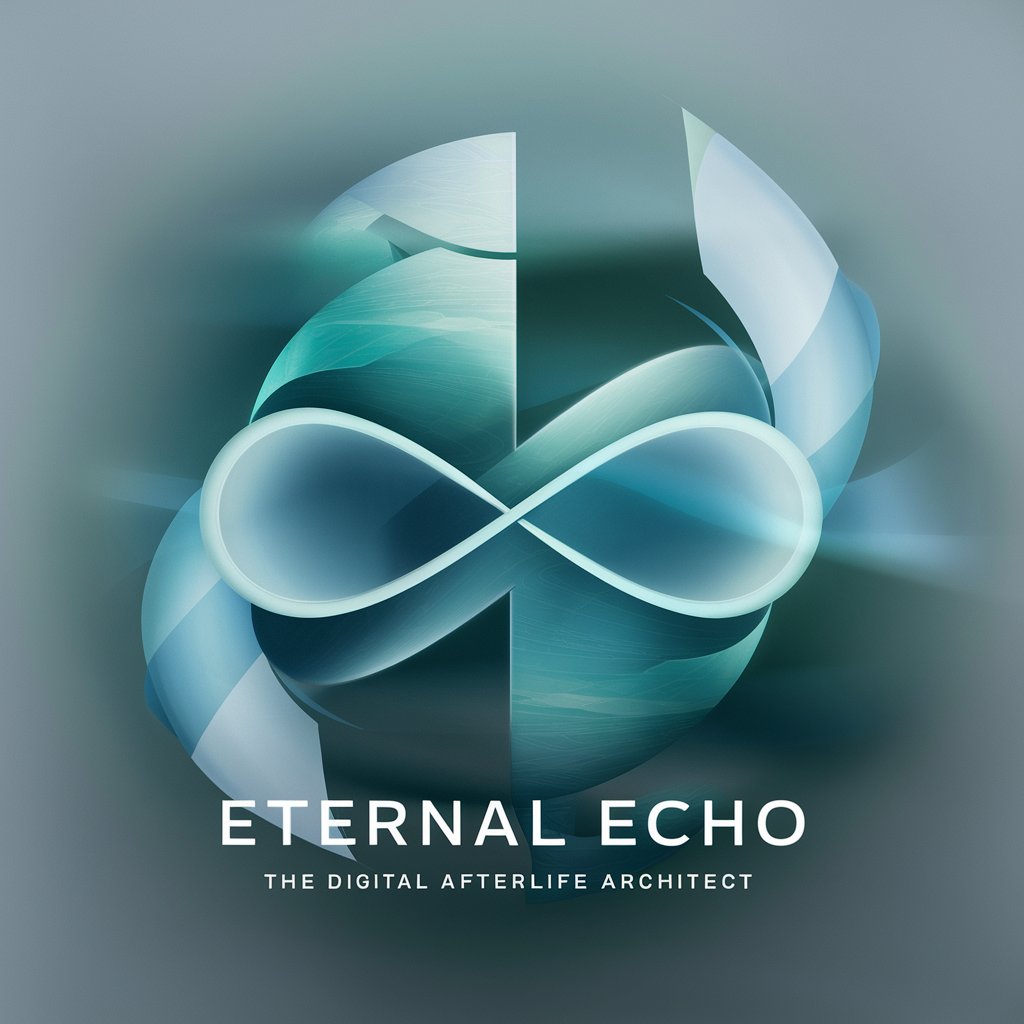
findmeagpt.com
Your Gateway to Tailored AI Solutions
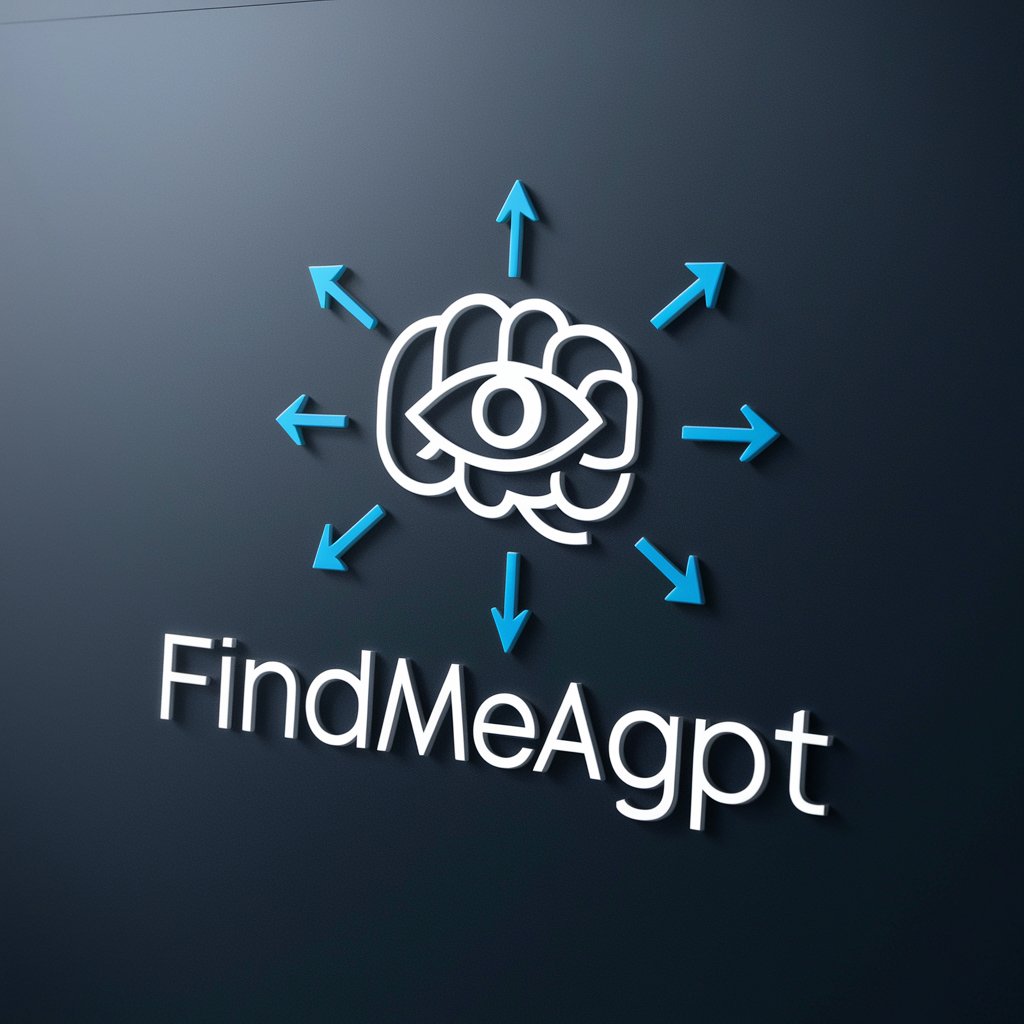
Unix OS VE
Harness AI to Master Unix OS

Kannada Gottu GPT
Learn Kannada with AI Conversations

Disclosure-Analysis
AI-powered insight into real estate disclosures

重写
Revolutionize Your Writing with AI-Powered Precision

Fulton Chat
Empowering Fulton County with AI

PG Bot
AI-Powered Paul Graham Wisdom

Interview Coach
Ace Your Next Interview with AI

Gamie Genie
Your Personal AI Gaming Concierge

Frequently Asked Questions about AstronomyGPT
Can AstronomyGPT predict future astronomical events?
AstronomyGPT can provide estimations based on current scientific data and theories, but it cannot predict future events with certainty.
Does AstronomyGPT provide real-time space data?
While I can offer insights based on the latest known information, I don't have access to real-time data or updates.
Can AstronomyGPT assist with academic research in astrophysics?
Yes, I can provide detailed explanations, references, and insights useful for academic research, within the scope of my training data.
How does AstronomyGPT handle complex astrophysical calculations?
I can assist with basic calculations and theoretical explanations, but for highly complex computations, specialized software is recommended.
Is AstronomyGPT suitable for teaching astronomy to beginners?
Absolutely, I can tailor responses to suit a beginner's level, making complex astronomical concepts more accessible and understandable.
